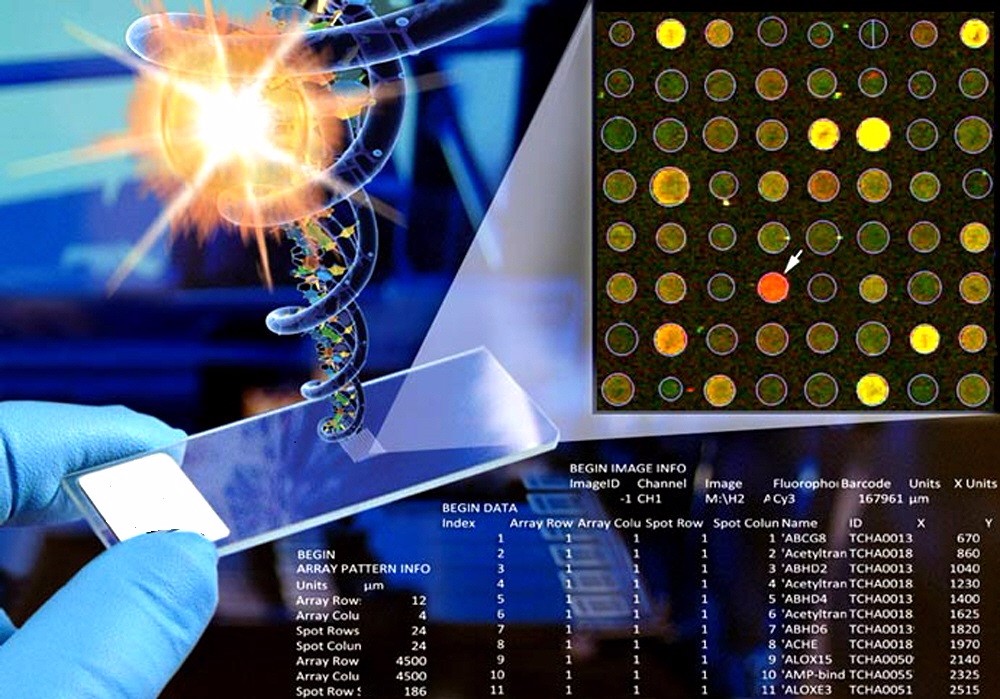Most studies on the adhesion molecules are performed by multiwell plates and this approach consumes considerable quantities of samples. Most of the studied samples are proteins purified from tissues. Thus, they could be expensive and hard to obtain. They can also be limited in quantity, especially when the source of the samples is human. There can exist in another problem which is cell culture, especially when the samples are stem cells or biopsied material. Therefore, the miniaturization of cell adhesion assays which can provide higher throughput and rapid examination only small amount of samples are needed are urgent required. For this reason, many novel cell adhesion assays occur including microarrays.
The microarray is an advanced method to research cell adhesion which can provide both reproducible immobilization of protein and a better control of cell culture conditions while using low amounts of samples. Microarrays can measure different cell adhesion to large panels of substrates accurately and sensitively with minimum amounts of adhesive substrates and cells. It can be easily blocked with appropriate reagents to avoid unspecific cell attachment and provide reliable and reproducible results. Microarrays can also be performed to many applications by interrogating cell-substrate adhesion. For example, microarrays can be used to determine changes of gene expression, effects of therapeutic treatments and as a diagnostic tool for diseased cells by profiling cell adhesion to various substrates. It also can be used for tissue engineering by screening substrates for cell adhesion. Several cell microarrays have been developed to comparatively research the cell adhesion to different substrates including polymers, peptides, major histocompatibility complex (MHC) and so on. It is a powerful and versatile research method and can be particularly useful for extensive comparative cell adhesion profiling studies when there is not abundant sample accessible.

The microarray can profile many different adhesion molecules in a highly parallel and high throughput way. Creative Bioarray offers the service of assessing adhesion molecules including Collagen I, Collagen IV, Fibronectin and Vitronectin by this way. Additionally, Creative Bioarray provides data analysis of your experimental results.

*If your organization requires signing of a confidentiality agreement, please contact us by email.
Online Inquiry